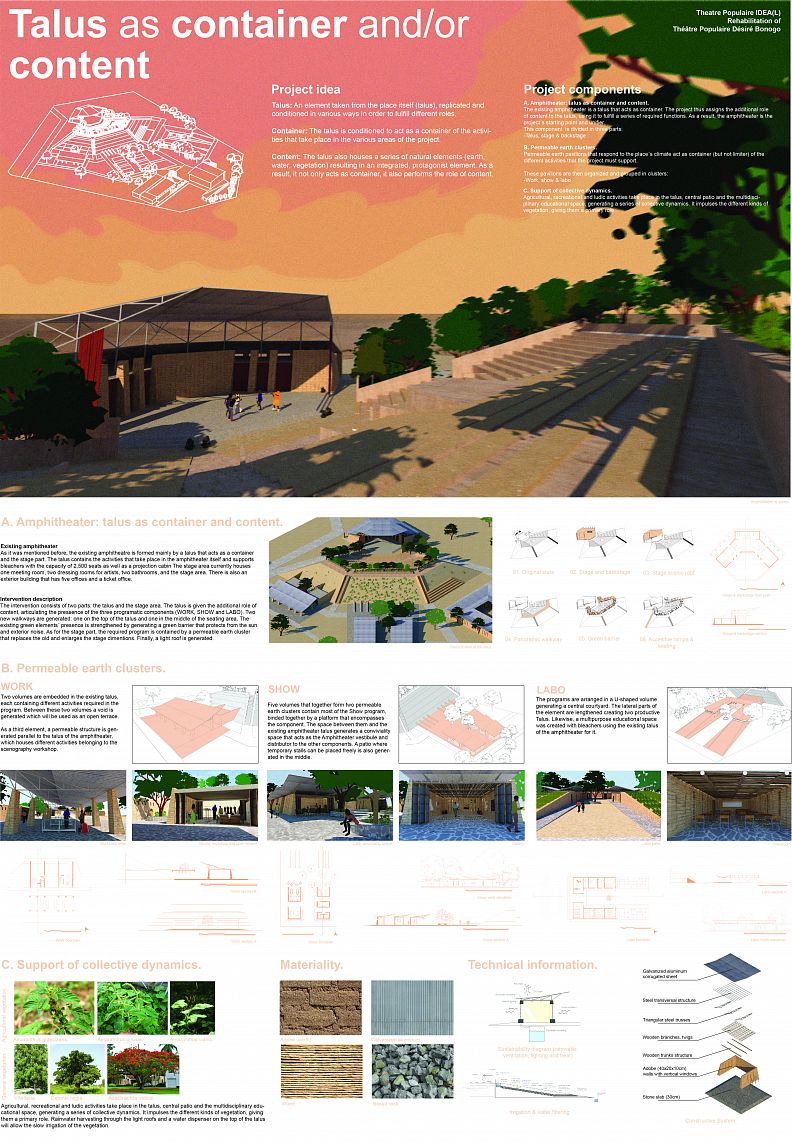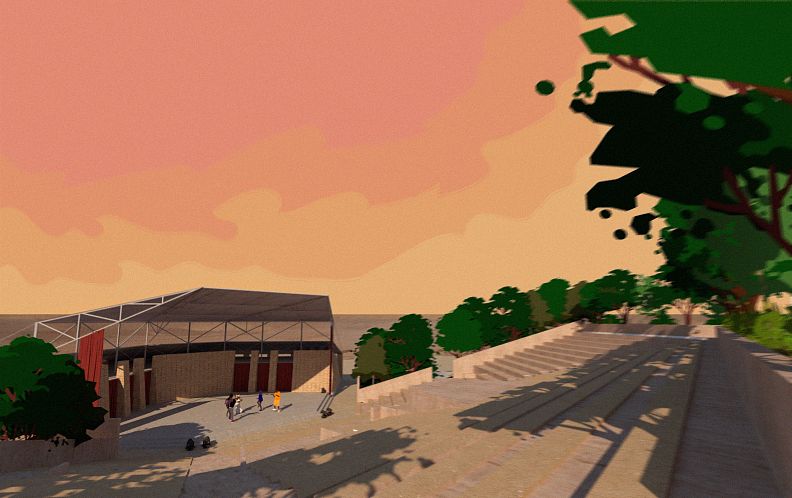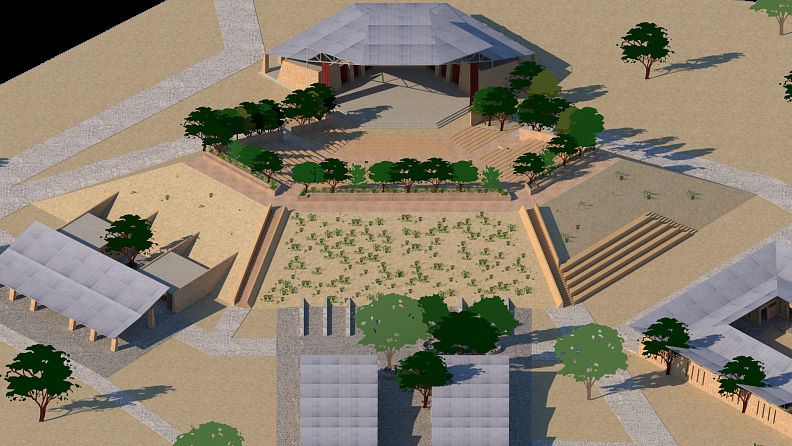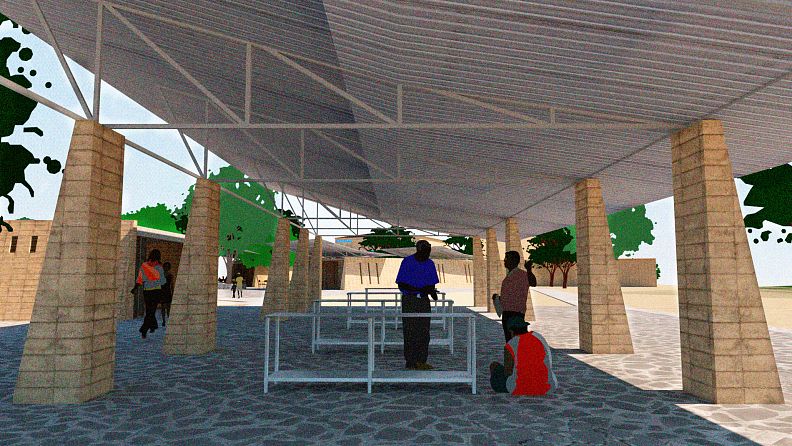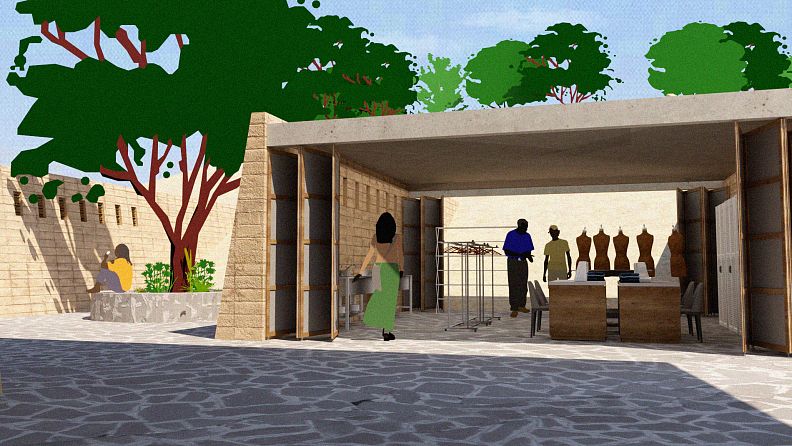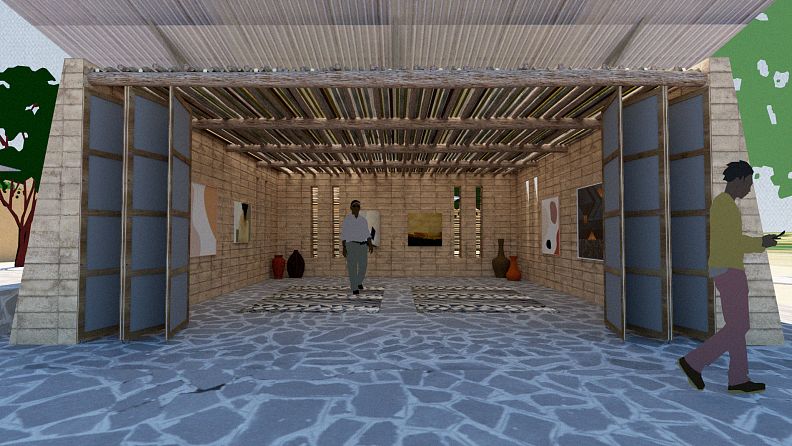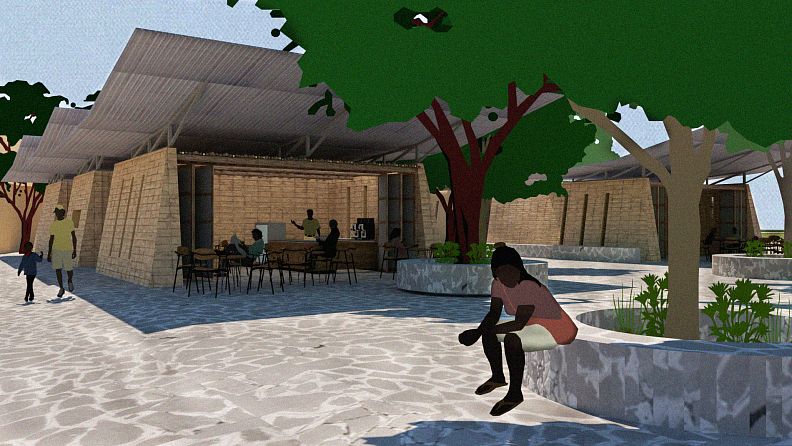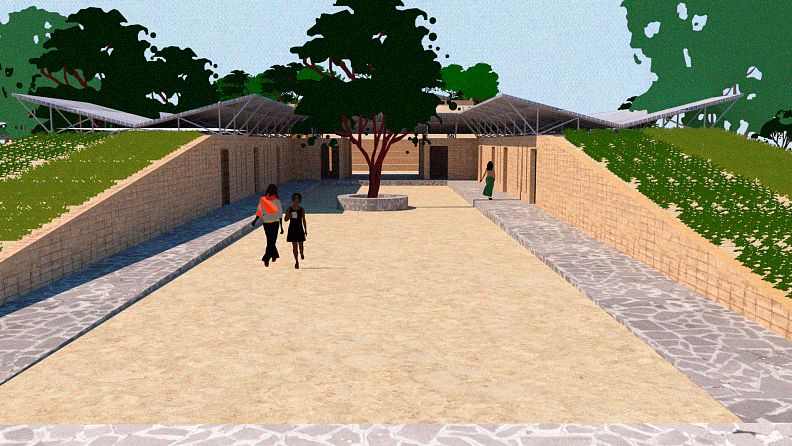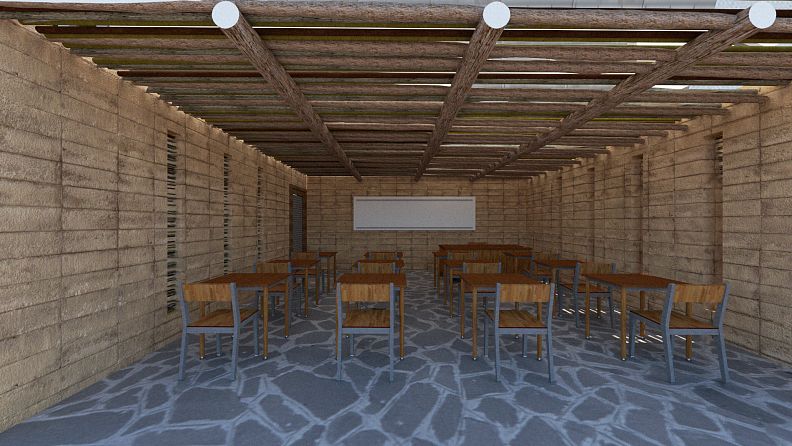Talus as container and/or content

Project idea
Talus: An element taken from the place itself (talus), replicated and conditioned in various ways in order to fulfill different roles.
Container: The talus is conditioned to act as a container of the activities that take place in the various areas of the project.
Content: The talus also houses a series of natural elements (earth, water, vegetation) resulting in an integrated, protagonist element. As a result, it not only acts as container, it also performs the role of content.
Project description
Amphitheater: The existing amphitheater is formed mainly by a talus that acts as a container and the stage part. The talus contains the activities that take place in the amphitheater itself and supports bleachers with the capacity of 2,500 seats as well as a projection cabin. The stage area currently houses one meeting room, two dressing rooms for artists, two bathrooms, and the stage area. There is also an exterior building that has five offices and a ticket office.
The intervention consists of two parts: the talus and the stage area. The talus is given the additional role of content, articulating the presence of the three programmatic components (WORK, SHOW and LABO). Two new walkways are generated: one on the top of the talus and one in the middle of the seating area. The existing green elements presence is strengthened by generating a green barrier that protects from the sun and exterior noise. As for the stage part, the required program is contained by a permeable earth cluster that replaces the old and enlarges the stage dimensions. Finally, a light roof is generated.
Permeable Earth Clusters are conformed by the three main components.
Work: Two volumes are embedded in the existing talus, each containing different activities required in the program. Between these two volumes a void is generated which will be used as an open terrace.
As a third element, a permeable structure is generated parallel to the talus of the amphitheater, which houses different activities belonging to the scenography workshop.
Show: Five volumes that together form two permeable earth clusters contain most of the Show program, binded together by a platform that encompasses the component. The space between them and the existing amphitheater talus generates a conviviality space that acts as the Amphitheater vestibule and distributor to the other components. A patio where temporary stalls can be placed freely is also generated in the middle.
Labo: The programs are arranged in a U-shaped volume generating a central courtyard. The lateral parts of the element are lengthened creating two productive Talus. Likewise, a multipurpose educational space was created with bleachers using the existing talus of the amphitheater for it.
Support of collective dynamic: Agricultural, recreational and ludic activities take place in the talus, central patio and the multidisciplinary educational space, generating a series of collective dynamics. It impulses the different kinds of vegetation, giving them a primary role. Rainwater harvesting through the light roofs and a water dispenser on the top of the talus will allow the slow irrigation of the vegetation.
Technical information
Constructive System: The materiality is consistent throughout the entire project, boosting techtonicity and permeability and integrating all of it:
-Adobe Blocks
-Reed, branches, tree trunks and stems roofs.
-Galvanized aluminum corrugated sheet.
-Tree trunks beams.
-Steel triangular trusses.
Walls will be made of adobe blocks (40x20x10cm) with a light inclination to conform the talus. All these walls that integrate the permeable earth cluster will carry tree trunks that will assume the role of beams. To maintain a fresh space, vegetal material will be placed on the windows and on top. Followed by triangular trusses that will support the galvanized aluminum light sheet.
Rainwater harvesting system: Rainwater harvesting will take place through the inclination given to the roofs, storing it in a series of tanks to take advantage of this resource in the different activities that the project must support. In addition, the productive talus will allow the capture of water and filtration of it through artificial wetlands that will allow the supply of water to the crops. The light roofs are separated from the talus by triangular trusses, allowing cross ventilation to pass through it. Also, the perforations made to the talus allow this same effect.
